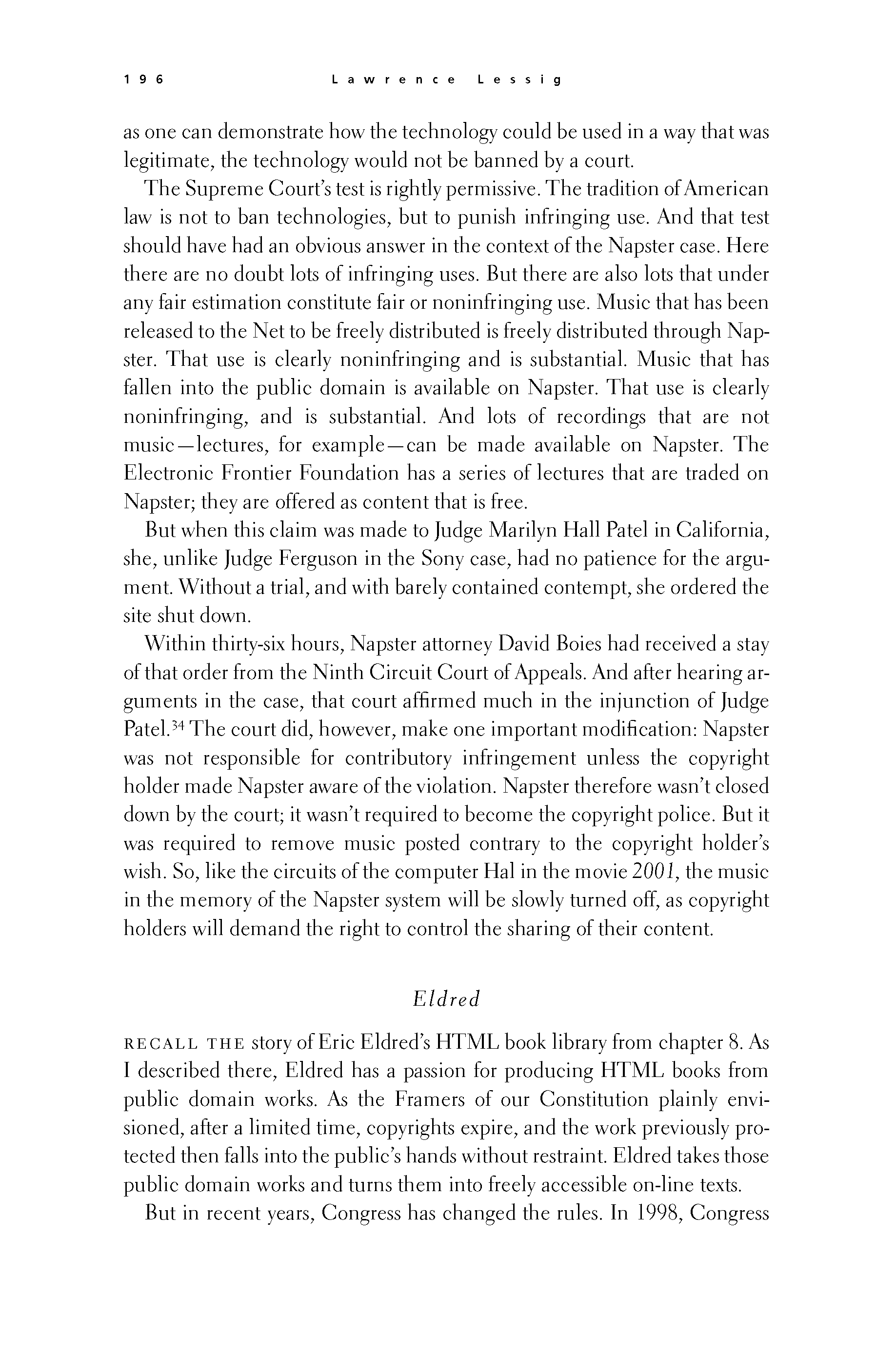 p195 _
-chap- _
toc-1 _
p196w _
toc-2 _
+chap+ _
p197
p195 _
-chap- _
toc-1 _
p196w _
toc-2 _
+chap+ _
p197
as one can demonstrate how the technology could be used in a way that was
legitimate, the technology would not be banned by a court.
The Supreme Court's test is rightly permissive. The tradition of American
law is not to ban technologies, but to punish infringing use. And that test
should have had an obvious answer in the context of the Napster case. Here
there are no doubt lots of infringing uses. But there are also lots that under
any fair estimation constitute fair or noninfringing use. Music that has been
released to the Net to be freely distributed is freely distributed through Nap-
ster. That use is clearly noninfringing and is substantial. Music that has
fallen into the public domain is available on Napster. That use is clearly
noninfringing, and is substantial. And lots of recordings that are not
music -- lectures, for example -- can be made available on Napster. The
Electronic Frontier Foundation has a series of lectures that are traded on
Napster; they are offered as content that is free.
But when this claim was made to Judge Marilyn Hall Patel in California,
she, unlike Judge Ferguson in the Sony case, had no patience for the argu-
ment. Without a trial, and with barely contained contempt, she ordered the
site shut down.
Within thirty-six hours, Napster attorney David Boies had received a stay
of that order from the Ninth Circuit Court of Appeals. And after hearing ar-
guments in the case, that court affirmed much in the injunction of Judge
Patel.[11-34] The court did, however, make one important modification: Napster
was not responsible for contributory infringement unless the copyright
holder made Napster aware of the violation. Napster therefore wasn't closed
down by the court; it wasn't required to become the copyright police. But it
was required to remove music posted contrary to the copyright holder's
wish. So, like the circuits of the computer Hal in the movie _2001,_ the music
in the memory of the Napster system will be slowly turned off, as copyright
holders will demand the right to control the sharing of their content.
/tab\/tab\_Eldred_/tab\/tab\
Recall the story of Eric Eldred's HTML book library from Chapter 8. As
I described there, Eldred has a passion for producing HTML books from
public domain works. As the Framers of our Constitution plainly envi-
sioned, after a limited time, copyrights expire, and the work previously pro-
tected then falls into the public's hands without restraint. Eldred takes those
public domain works and turns them into freely accessible on-line texts.
But in recent years, Congress has changed the rules. In 1998, Congress
[[196]]
p195 _
-chap- _
toc-1 _
p196w _
toc-2 _
+chap+ _
p197